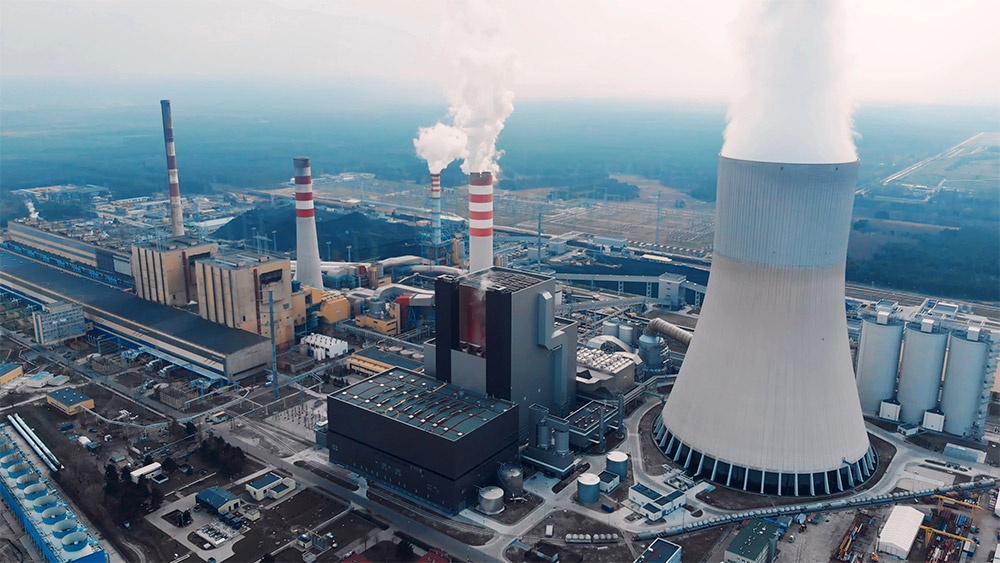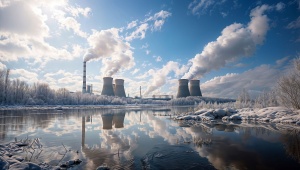A nuclear focus for energy security
Minister of Industry and Trade Nguyen Hong Dien last week reported to the National Assembly (NA) on the Electricity Law, with an amendment that sets out a policy on nuclear power development.
The proposal is that the state has a monopoly in investing in the construction of power plants of this type, as it is related to national security.
“Nuclear power is a large, stable source of electricity, capable of running in the background to contribute to ensuring energy security. In addition, this is also a source of electricity that does not emit CO2, meeting carbon neutrality goals,” said Dien.
 |
| Nuclear power development can have positive knock-on effects for industries such as chemical technology and metallurgy, Photo: Shutterstock |
The Ministry of Industry and Trade’s (MoIT) report to NA stated that the investment in construction, operation and decommissioning as well as ensuring the safety of nuclear power plants must comply with the provisions of the Law on Atomic Energy and related regulations. Nuclear power planning is a part of the national power development planning to ensure the goal of electricity supply security, and related ventures must use modern, verified technology.
The MoIT has been assigned to study global experience to propose developing nuclear power in Vietnam and report to the Politburo, as well as urgently review all power sources in the Power Development Plan VIII (PDP8) in the direction of shifting from coal to gas power.
Nuclear power was approved by the NA in 2009 but was then suspended in 2016 due to various obstacles. In the global energy transition trend, many countries are returning to nuclear power.
Nuclear power development is not currently mentioned in the PDP8. However, in a report sent to ministries and sectors requesting comments on the draft plan amendment, the MoIT mentioned the development of small nuclear power plants.
According to the MoIT, small modular reactors have a capacity of about 300MW per unit, one-third of the output capacity of traditional reactors. These plants produce low-carbon electricity with a short construction time (about 24-36 months). This will help increase the efficiency of renewable energy sources, contribute to the clean energy transition, and help countries achieve sustainable development goals.
Pham Quang Minh, deputy director of the Vietnam Atomic Energy Institute, said in October that the restart of nuclear power projects in Vietnam is reflected in the context of sustainable energy development policies, ensuring energy security, and commitments to reduce carbon emissions.
“In the case of restarting nuclear power projects, the application of advanced nuclear technologies and ensuring the highest safety standards are very important,” Minh said. “Researching and considering restarting nuclear power projects to serve socioeconomic development is necessary at the present stage.”
He added that developing nuclear power will create the premise and opportunity to create a team of high-quality workers to develop the country, as well as the opportunity to strongly promote science and technology, especially promoting nuclear engineering and radiation tech in medicine, agriculture, industry, and environmental resources.
The development of nuclear power will also help develop fundamental industries such as mechanical engineering, measurements, automatic control, chemical technology, and metallurgical materials, Minh added.
 | Vietnam exploring nuclear energy development The government has directed the Ministry of Industry and Trade (MoIT) to study nuclear energy practices from other countries to propose its development in Vietnam. |
What the stars mean:
★ Poor ★ ★ Promising ★★★ Good ★★★★ Very good ★★★★★ Exceptional
Related Contents
Latest News
More News
- Trung Nam-Sideros River consortium wins bid for LNG venture (January 30, 2026 | 11:16)
- Vietnam moves towards market-based fuel management with E10 rollout (January 30, 2026 | 11:10)
- Envision Energy, REE Group partner on 128MW wind projects (January 30, 2026 | 10:58)
- Vingroup consults on carbon credits for electric vehicle charging network (January 28, 2026 | 11:04)
- Bac Ai Pumped Storage Hydropower Plant to enter peak construction phase (January 27, 2026 | 08:00)
- ASEAN could scale up sustainable aviation fuel by 2050 (January 24, 2026 | 10:19)
- 64,000 hectares of sea allocated for offshore wind surveys (January 22, 2026 | 20:23)
- EVN secures financing for Quang Trach II LNG power plant (January 17, 2026 | 15:55)
- PC1 teams up with DENZAI on regional wind projects (January 16, 2026 | 21:18)
- Innovation and ESG practices drive green transition in the digital era (January 16, 2026 | 16:51)

 Tag:
Tag:



















 Mobile Version
Mobile Version